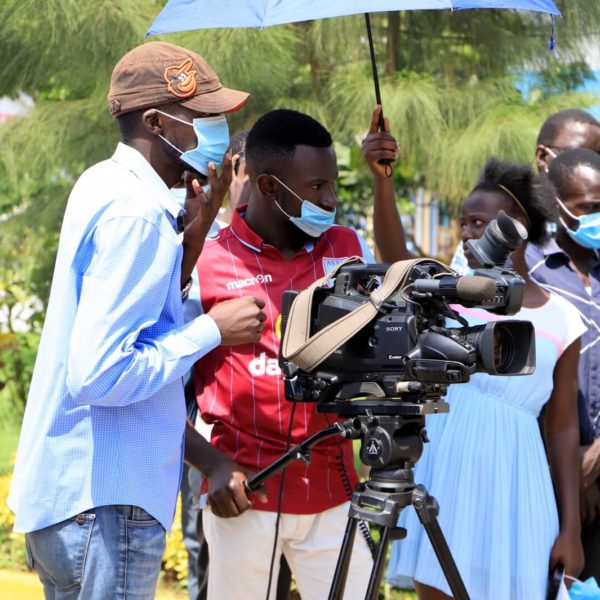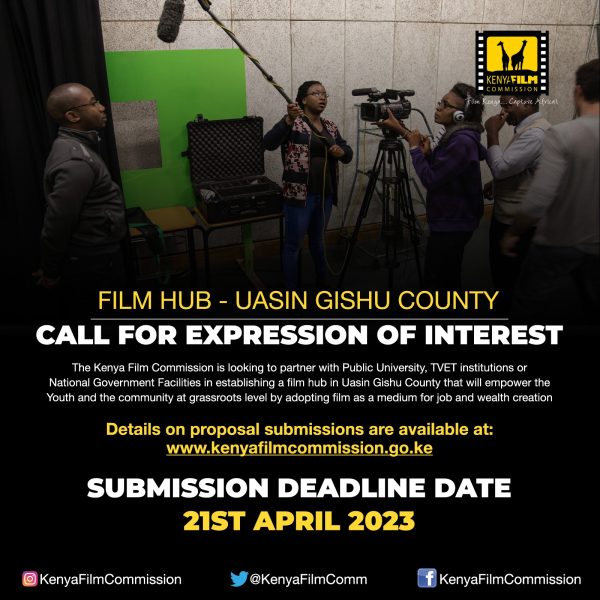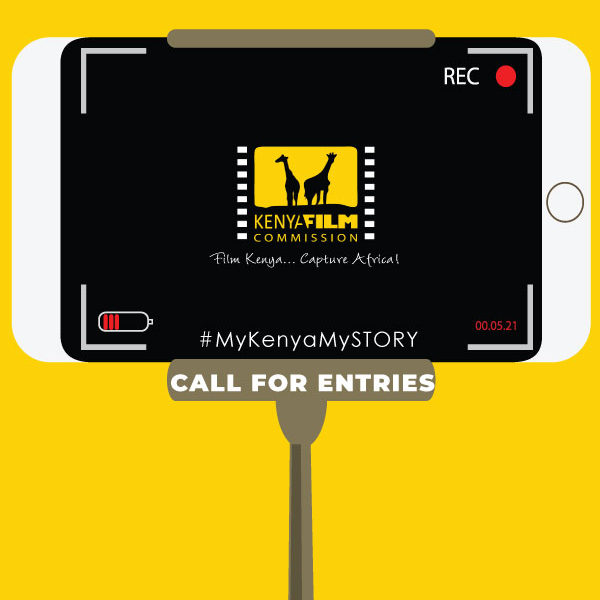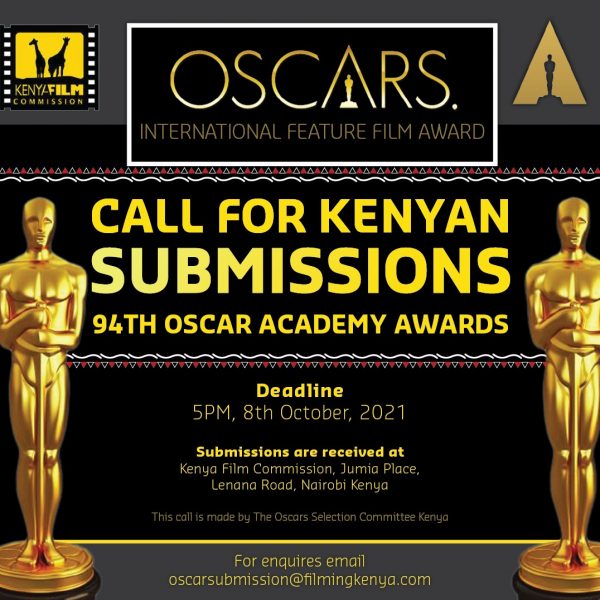1.Visa and special passes
The Kenya Film Commission (KFC) is working to see that local content flourishes in the country and that the film industry is recognized as a potential employer and a main contributor to the economic growth of the country.
We exist to foster a successful film industry in Kenya and the expression of Kenyan culture on screen. Our role is consistent with the Government’s priorities to build a more competitive and productive economy and deliver better public services to Kenyan people and the world.
Significant economic value is derived from spending in Kenya by offshore interests. Film sector activity in Kenya also generates important spill-over benefits to other parts of the economy e.g. transfer of skills and technology to other sectors and international connections for trade and diplomacy.
2. Licences and Taxation
FILM LICENSES
KFCB would wish to inform all their stakeholders, in particular the film industry that the board has consolidated all its operations to include: registration of local film agents, film licensing, examination and classification of content will be offered at their head quarter. Please note that film licensing and registration of local film agents is also done at their regional offices in Mombasa, Nakuru, Kakamega, Nyeri, Garissa, Embu, Isiolo, Eldoret and Kisumu
For further information and enquiries please reach them on:
Telephone: (020) 2250600/2241804/
Mobile: (+254) 711 222 204/ 773 753 355
Website: www.kfcb.co.ke
Email: info@kfcb.co.ke
FRAMEWORK ON WAIVERS BY THE NATIONAL TREASURY
On October 18th 2018, the National government directed all state agencies to abide by a new framework of guidelines requesting, processing and granting of tax exemptions and waivers on any national tax, fees or charges within the national treasury circular No.9/2018. For application of the same through the Commission, please be guided by the requirements as provided here click here to download
REMOVAL OF CURRENT IMPORT DUTY 25% AND VAT 16% ON TELEVISION CAMERAS, DIGITAL CAMERAS AND VIDEO CAMERA RECORDERS
This was amended in the National Budget June 2009, effective date being 12th June 2009.
The amendments done were:-
- Removal of the current Import Duty of 25% and VAT of 16% on Television Cameras, Digital Cameras and Video Camera Recorders.
- Zero-rating for VAT and taxable goods and services offered to film producers.
- Granting a one hundred percent (100%) Investment deduction on Capital Expenditure incurred by a film producer or purchase of any filming equipment.
New regulation by Kenya Bureau of Standards on all importers of goods coming to kenya click here for more information
DRONES REGULATIONS
The civil aviation acf(no. 21 0/2013)the civil aviation (remote piloted aircraft systems) regulations, 2017 arrangement of regulations.
- You must first receive approval to operate your drone from the ministry of Defence. Contact information at the bottom of this page.
- Once you have received approval from the ministry of Defence you must apply to the Kenya Civil Aviation Authority and receive approval to fly your drone. Contact information is listed at the bottom of this page.
The civil aviation acf(no. 21 0/2013)
All applicants should send email to rpas@kcaa.or.ke to obtain appropriate application form.
Download :![]() Kcaa_assr_rpa-001 – application for rpa importation_registration- ammended.
Kcaa_assr_rpa-001 – application for rpa importation_registration- ammended.
FILMING WITHIN KENYAN NATIONAL PARKS
Filming within Kenyan National Parks requires a permit and the payment of fees. Please click here for a schedule of tariffs and contact customerservice@kws.go.ke for more information.
FILMING WITHIN KENYAN NATIONAL MUSEUMS
Whether you are looking to make films, documentaries, adverts, radio programmes or to develop research, the National Museums of Kenya has the resources to help. You will be guided through every stage of the process. From site visit, administration and pre-planning through to managing your filming day, the Museum has dedicated staff on hand to help you. For more information click here
General Enquiries
Public relations:-
E-mail: publicrelations@museums.or.ke
Tel:+254-20-8164134/35/36
3.Marketing
Market Access Considerations
Kenyan production or service companies will arrange budgets, shooting schedules, breakdowns, recruitment of cast and crew, location surveys and reconnaissance trips, hire of equipment, facilities and service, accreditation for work permits, location permits, post production staff services, and payrolls, cost reports and budget reconciliations.
Work/Entry Permit in Kenya
Any Work or Residence Permits are issued to any Non-Kenyan wishing to engage in employment in Kenya whether in gainful employment or voluntary service. And this issued by the Immigration Department in Kenya, which is classified under Kenya Citizenship and Immigration Act 2011 of Laws of Kenya. The following are the various classes of Permits and their respective requirements.-
Note: All Non-Kenyan citizens must be in possession of an entry/work permit or exemption, issued by the Office of the Director of Immigration Services, before they can take up employment in Kenya, whether paid or unpaid.
Non-Kenyans wanting to carry out short term business assignments like assembling machinery, maintenance or performance whether paid or unpaid must obtain a Kenya Special Pass from The Director of Immigration Services.
Non-Kenyan students intending to pursue studies in Kenya at any level including internships, must obtain a Kenya Pupils Pass from the Director of Immigration Services before embarking on their studies.
Any inquiries should be addressed to:
Director of Immigration Services
Department of Immigration
Nyayo House 9th Floor
P.O. Box 30191-00100
Nairobi, Kenya.
Tel: +245-20-222022
Fax: +254-20-220731
Email: adis1@immigration.go.ke
Kenya Revue Authority
The KRA is mandated by the government of Kenya to Assess, Collect, Administer and Enforce laws relating to revenue.
The Authority is a Government agency that runs its operations in the same way as a private enterprise. In order to offer better single-window services to taxpayers, KRA is divided into five Regions as follows: Rift Valley Region, Western Region, Southern Region, Northern Region and Central Region.
In terms of revenue collection and other support functions, the Authority is divided into the following Departments:
- Customs Services Department
- Domestic Taxes Department
i) Domestic Revenue
ii) Large Taxpayers Office - Road Transport Department
- Support Services Department
- Investigations & Enforcement Department
The department that is highly tasked with film industry is mainly Domestic Taxes department and there are two main officers designated in assisting with film industry matters:
- Deputy Commissioner – Airports Operations
- Deputy Commissioner- Ports Operations
Equipment that comes into the country can be cleared in different categories,
The first scenario being (accompanied equipment) shipped in for a temporary stay into the country. The required upfront payment is always Kshs. 30,000 that serves as the security bond. But when the production company finishes their work they are refunded the money upon departure of personnel and equipment.
The second scenario is when it is unaccompanied equipment (sea or air), then a Temporary import of equipment form shall be filled in and the (particulars and value of equipment) are filled in specific details. That is when the security bond is calculated in relation to value of equipment being shipped into the county.
Thereafter they are forwarded together with the security bond to cover for any taxes or resale value in case the filming crew wishes to leave the equipment behind. The execution of the bond is usually done by the licensed clearing agents for example DHL, Kuehne & Nagel, Ballore Africa and Urgent cargo. It is important to note that there no taxes charged on the filming equipment imported into the country either by sea, road or air instead the security bond stands up as a security measure in case of any eventuality during the production and post-production process.
The clearing agents needs the following documents in order to clear the equipment: supporting documents, invoice to indicate payment and list of equipment that has been parked.
![]() The licensed cutoms clearing agents
The licensed cutoms clearing agents
4. Permits
Foreign students and scholars who would like to undertake research on the film industry within Kenya need to apply for Research Authorization from the Ministry of Higher Education Science & Technology.
For more information log on to http://www.education.go.ke/home/



















